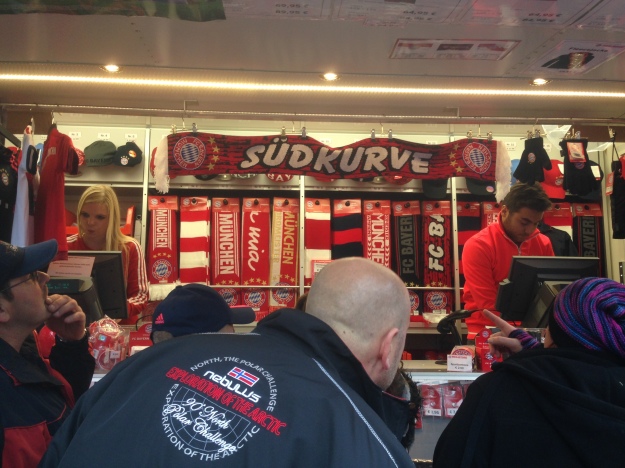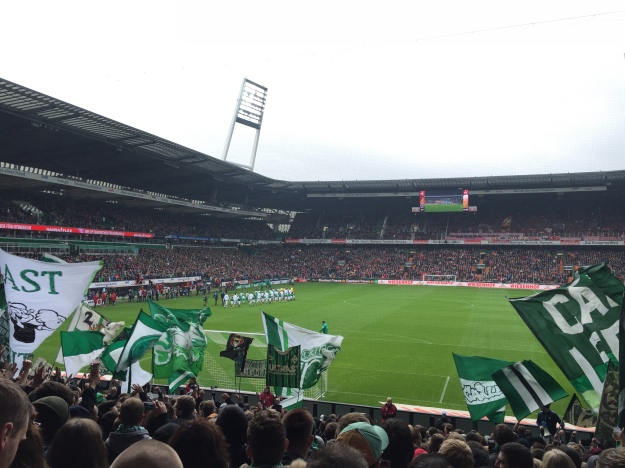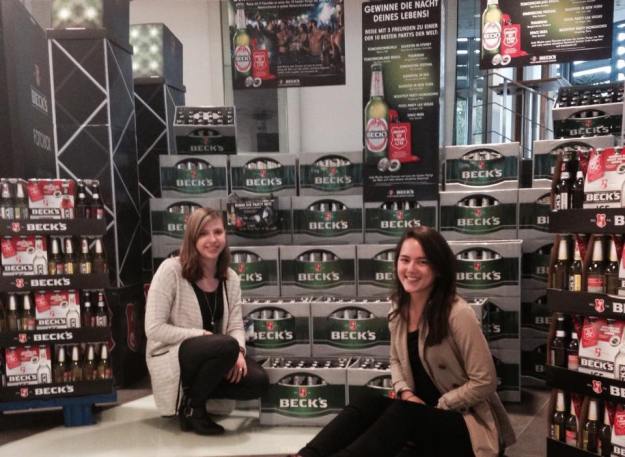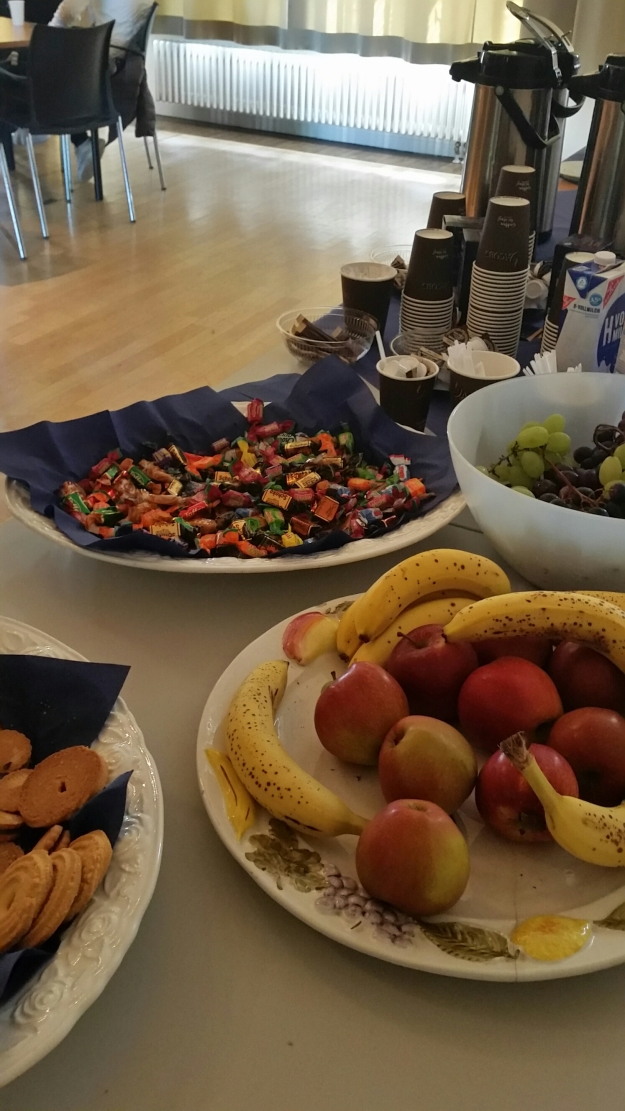Dear readers,
our website has officially been moved to: http://admissionsblog.user.jacobs-university.de/
We hope to see you on our new and improved website with our new weekly posts!
Best,
The Admissions Team

Dear readers,
our website has officially been moved to: http://admissionsblog.user.jacobs-university.de/
We hope to see you on our new and improved website with our new weekly posts!
Best,
The Admissions Team
The life of a University student can get very stressful and overwhelming. Sometimes it seems like there is a lab report or an essay due every week in addition to exams and quizzes. How does one deal with this academic pressure? Well why not ask the Professors! Their teaching experience as well as their experience as Academic Advisors will give us some useful insight into their perspective on academic pressure. Make sure to stay tuned for Part 2: the students’ perspective. But now let’s get to know the professors:
Prof. Dr. Karen Smith Stegen
has been teaching at Jacobs University since 2009. Her primary research interests are: Energy and Environmental Politics, Social and Transnational Movements, International Relations
I took two courses with her in my first and second semester: International Institutions and Social Movements & Political Participation. Both of them were incredibly eye-opening and a pleasure to attend. This is not really a surprise since Professor Smith Stegen received the “Teacher of the Year Award” – one student saying her “class was the perfect combination of intellectual rigor and hilarity”.
Professor Dr. Alexander Lerchl
has been a professor of Biology at Jacobs for 14 years now. His research interests are: Zoology, Neurophysiology, Neuroendocrinology, Chronobiology, Biostatistics.
I took two courses with him in my first year: General Biology and Neuroscience and Introduction to Neuroscience. As I am a Social Science major it was incredibly refreshing to take these courses and to learn about the brain, our body and the world around us from a natural science perspective. Professor Lerchl classes were very entertaining and he even gave us some sneak peeks into his own research.
Professor Dr. Adalbert F.X. Wilhelm
has been a Professor of Statistics at Jacobs University since 2001.His research interests are: Information and Knowledge Management, Statistical Visualization, Data Mining, Exploratory Data Analysis, Computational Statistics.
I am currently taking a course with Professor Wilhelm called Statistical Methods II: Classification, Modelling and Prediction (quite a mouthful, I know). Professor Wilhelm has managed to make an important course like Statistics enjoyable for somebody like me, who has no talent whatsoever when it comes to numbers. That is quite an achievement and the highest compliment coming from me!
Professor Dr. Smith Stegen:
I think students come under academic pressure when they attach too much importance to getting the highest possible grade on each assignment and in each class. My advice to students is to keep things in perspective. One way to do this is to project oneself into the future and imagine how important (or unimportant) a particular assignment or grade really will be in the scheme of things. Or to look back and ask themselves how truly important individual assignments were in the past. Quite often, the things we stress ourselves about are not so important in the long run and it is helpful to keep this in mind. To relieve immediate stress, I suggest students take breaks to do things they enjoy, such as sports, listening to music, reading something entertaining, or taking a walk. We have beautiful parks and a riverfront close to campus and they are great for walking, jogging or biking. In addition, I personally find that humor helps greatly with stress relief and even to combat fatigue. When I was working on my dissertation, I used to watch one episode of The Simpsons (which is about 20 minutes) in the afternoon instead of drinking a coffee. These types of mini-breaks also allow the brain to subconsciously work through some of the puzzles or problems one had been thinking about. Often, these kinds of “breaks” lead to insights and solutions. Indeed, some of my best ideas come to me while I am biking to work. If such techniques do not help and students are having problems coping with pressure, then they can also turn to our counseling center.
Professor Dr. Lerchl:
Academic pressure is a serious issue. On one hand, students are excited about the many courses they can register for. On the other, they will realize, sometimes after the drop-add-deadline, that they have chosen too many courses. The burden can become immense! My advice: register for the mandatory courses only, do not overload yourself.
Professor Dr. Wilhelm:
Learn both, how to cope with it and how to escape from it from time to time. The academic world is highly competitive, but there is more to life than grades and the accumulation of knowledge. Try hard, don’t look for the easy way out, but also have the confidence in yourself that you are capable to learn and decide what is best for you. Don’t let yourself get carried away with academic pressure and competition: learn to prioritize, make a plan, develop a steady work routine, and keep in mind that the German word “Bildung” encompasses ways more than just learning for exams.
Professor Dr. Smith Stegen:
When I write letters of recommendation for students, the top “standout” qualities are, not in order of importance, diligence, intelligence, and having a good attitude (which also encompasses “integrity”).
Professor Dr. Lerchl:
Alertness, open-mindedness, critical thinking.
Professor Dr. Wilhelm:
Curiosity, Tolerance, Enthusiasm
Professor Dr. Smith Stegen:
I think people–students and non-students–often procrastinate a job or task because it seems mountainous. A good coping mechanism is to break the task down into small parts and then tackle them one-by-one. There is a wonderful book called Bird-by-Bird (by Anne Lamott), in which the author’s father counsels his panicked son, who has procrastinated a report on birds until the last minute, to write the report “bird by bird”. This is how I approach my large, mountainous tasks and it often helps.
Professor Dr. Lerchl:
Do it NOW!
Professor Dr. Wilhelm:
Embrace it. There are people who are fairly immune against procrastination. If you are one of them, lucky you. For all others: don’t ignore procrastination and don’t let it happen. Be aware of it and include it into your plans and schedules. Be realistic and get to know yourself. Be aware that some additional tasks will come in unexpected and be prepared for adaptations of your schedules. Stay in control about your time management and develop a realistic view on how large a pile of unfinished business you can handle and how much procrastination you need and how much you can accommodate.
Something that you quickly learn when you live in Germany is that Germans have an incredible amount of festive markets. The list of markets go on and on: Freimarkt, Weihnachtsmarkt, Oktoberfest, Ostermarkt, Volksfest, and individual towns even have their own distinct markets. Yet the main commonality between these holiday markets is that they will all generously spoil you with some of the most deliciously indulgent foods.
Some of the top contenders include insane whipped cream-ice cream (Eis wie Sahne), which honestly is like soft serve but better. You can have it dipped in chocolate sprinkles, crispy sprinkles, and happiness.
Other foods that Freimarkt offers includes an entire store for cheese – which means chili poppers nuggets, camembert with jam, and more cheese than you thought you could ever handle in your whole life.
My list of foods to conquer at Freimarkt is normally quite long and features some of the following: doughnuts (Berliners), currywurst, Glühwein, something with fish, Schaumküsse, Schmalzkuchen, Langos and chocolate-covered strawberries/bananas/apples.
Aside from food (which is my priority 90% of the time), there are also huge amusement park rides, a lively atmosphere, glittery lights and lots of happy locals – there is nothing more exciting than eating everything (and I mean, everything) at a German holiday market.
I’ve been to Freimarkt at least six times in my past 2 years here at Jacobs and each time has been filled with lots of joy, wonderful company and a particular strategy on how to eat as much as food as I can.
Being able to get out of the Jacobs bubble is a tremendous way to get to know Deutschland, its people and its wonderful culture. So advice to all incoming freshmen: take some time out during the chilly fall days of exams and stress to head downtown to check out Freimarkt, and begin preparing yourself for that winter hibernation, snow and the Weihnachtsmarkt. (!!!!)
Studying at Jacobs gives you great opportunities to experience the German football spirit. You can easily go to a Werder Bremen game on weekends at the Weser Stadium.
Before I came to Jacobs, I was a big fan of Germany national football team. I always wanted to go to Germany and at least watch a game of my favourite football players. One of my high school friends from Germany knew about this and gave me a Werder Bremen fan shirt signed by Miroslav Klose as a present. I originally only knew Klose and didn’t know about Werder Bremen. After two years, I am now in Bremen, where Werder Bremen is located.
Werder Bremen is a German sports club located in Bremen, Germany. It has won the Bundesliga Championship four times and the latest one was in 2004.
Today, I went to my first football game of Werder Bremen and Bayern München. It is convenient and free to get to the Weser Stadium by train, tram or bus with the ticket. Along my way to the stadium, football fans of both teams who came from everywhere were chatting and cheering.
Outside the stadium, there were people selling food, drinks and souvenirs. I bought a scarf to cheer for my home team.
 (Bayern München fans were shopping.)
(Bayern München fans were shopping.)
The stadium was almost full. I noticed that disabled people were sitting in the first row on every platform. I was again amazed by how much Germany cares about people with disabilities. Sitting in the Werder Bremen fan area, I talked to some German students and learnt to sing along and cheer in German. Everyone was so enthusiastic that it was impossible to just stand there instead of joining in on the shouting and clapping.
The final score was 1:0. Thomas Müller scored his ninth league goal of the season after controlling Thiago Alcântara’s pass.
 (Inside look of the Weser Stadium)
(Inside look of the Weser Stadium)
It was an awesome experience seeing my favourite german players so closely and watching a Bundesliga game live. Again, I enjoyed another advantage studying at Jacobs!
So you have come to Germany and to Bremen. But now, the question of where you get some things that were so accessible at home, that now aren’t can seem like a mystery. I know for me during my first year, my main questions revolved around beauty… like “where can I get my hair done” ? and where can I get makeup that suits me? But with a bit of looking I realized such places do exist in Bremen.And nearby Hamburg as well if you need an excuse for a good day trip 🙂
If keeping up your hairstyle is important to you but you don’t have any idea where to start , here are suggestions for salons that work with a variety of hair types.
Hair Places (addresses below)
A really nice young woman runs this salon and she and the salon staff put their best into making you look great. But it’s good to call ahead especially if you are going over the weekend, as it gets really busy.
Another really nice salon that has nice ambiance and a great team. Scheduling ahead of time is a plus and it is really easy to contact them online via email or over the phone , if you have questions or want to schedule an appointment.
This was recommended to me by a friend. This salon has a large staff so it might be good to ask about who specializes in the style you’re going for ( for example a short cut ). Plus it is super conveniently located in Vegesack by the bus stops.
A salon located downtown. It has a nice atmosphere and is efficient timewise. Was recommended to me because they cut all types of hair really well and are a good place to go for a trim.
Kumba–> https://www.facebook.com/KUMBA-AFRO-Hairstyles-1416429331922212/info/?tab=page_info
Torsten Dembny
Intercoiffure
Vegesacker Bahnhofsplatz 2
28757 Bremen
Telefon: 0421.663911
E-Mail: info@torsten-dembny.de
Internet: http://www.torsten-dembny.de
Mario Andolfi
Address: Langemarckstraße 196, 28199 Bremen, Germany
Phone:+49 421 5228954
Miss Chic The Salon
Wartburgstrasse 28
D-28217, Bremen, Germany
Phone: +(49) 0421-69 52 401
Mobil: +(49) 0176 374 46 301
info@mcthesalon.com
Opening times
Mon – Fri: 10:00 – 18:30
Sat: by appointment
Skincare, Hair care and Makeup
Buying makeup can also sometimes be a struggle! But most likely you will find your favourite brands and shades and products at the following stores. And of course Rossmann’s pharmacy has a good selection of products with well known brands, and it’s very convenient ( Haven Hoovt). ( Addresses below)
There is a small MAC display in the Douglass downtown but there is a larger store in Hamburg.
This perfume/ skin care store has a wide variety of product offerings, and has good options for if you have a specific skin or hair brand you are looking for. They also offer affordable basics like : nail color and shampoo.
Mac Cosmetics
Mönckebergstraße 10 · +49 40 30393220
Opens at 10:00 am
Parfümerie Douglas
Waterfront Bremen
AG-Weser-Straße 3 · +49 421 6437795
Opens at 10:00 am
Parfümerie Douglas
Sögestraße 31 · +49 421 323237
Opens at 9:30 am
Best of luck!
This past weekend Jacob’s Games 2015 took place. This is an inter-college competition, which includes sports such as soccer (also known to many as “football”, which I personally think is wrong :D), basketball, tug of war, and many more. Students from Krupp, Mercator, Nordmetall and C3 all dressed up in their college wear and went out to support their teams. I chose to participate in cheerleading as I did last year; however, I was cheering for the Mercator College as I recently moved from Nordmetall.
Despite what people may think, cheerleading is one of the most competitive sports during Jacobs Games. Our team met every night for 3 weeks to learn the dances, stunts, and cheers. At times, the practices were stressful, but in the end this is a chance to bond with those in your college. People that weren’t even on the team would come to our practices to support us and help whenever they could.
Every routine is around 4-5 minutes long and is a mesh of many different songs. The competition is always full of energy and tension. This year there were alumni and college heads that came to judge the competition. This year Nordmetall won the competition, Mercator came in 2nd, C3 3rd, and Krupp 4th. None of us are professional cheerleaders, but this is actually an aspect that makes this competition all the more fun. All of the teams did amazing and brought something new and different to the table. Here are some pictures that I took from the competition!
“Hey, I’m Aulon! Nice to meet you!”
“Hey, I’m Esteban! Where are you from?”
“I’m from Albania, you?”
“Well, my mother is from Venezuela, my grandfather came from Italy, and my father is from Argentina, but I was born and raised in Colombia, so …”
This is how my O-week went. Every introduction was unique and every time I grew more and more curious. At the moment, I am in my second year of pursuing my Bachelor in Computer Science , and after one year at Jacobs, I find it challenging to remember my previous years of life outside of the bubble.
Being raised in a small country like Albania, I rarely had the chance of seeing or meeting a foreigner. Despite neighboring countries with different languages, we lacked the traveling culture and mostly spent our vacations within Albania. I recall my 7th grade (middle school) when we started taking geography classes. During that year we were studying world geography and all the maps and globes (no google maps at the time, no google earth, we didn’t even have internet or personal mobile phones) emitted adventurous rays towards us. My friends and I came up with a game to make our class more fun; I separated the states by continents, listed them with their capitals, copied a number of papers and distributed them to my friends. The point of the game was simple: pick a continent, memorize the states and their respective capitals, and ask your opponents about those states. This way, you learned a continent by yourself and all the other continents by playing with your friends. I picked the Americas and I was surprised to see that there were a whole lot more countries than just USA, Mexico, Canada, Brazil, etc. Who would have thought that Barbados is a state, or Antigua & Barbuda? This made me realize that the world is actually bigger than I have ever imagined it to be. So cool!
Years passed and classes did not have those fun games anymore. After 6 months of standardized tests and preparations, my college hunt phase was approaching. Upon stumbling into Jacobs’ website, I noticed the focus on international student body. What does that mean? 114 different nation representatives? Wow! At the time, I had no idea what that would feel like. Then O-week happened and I saw myself surrounded by different people from all around the world. *She lived her whole life in South America!* *He lived in 4 different African countries!* *She was born in Japan, lived a couple of years in the US, then moved to Mexico, then to the Pacific and now Germany!* I bugged my friends with questions. How is your city? How is life there? What do you eat? How cold/warm is it? Please say something in your language!! And I still do bug them to this day because there is a lot to learn and a lot more to understand. I know phrases in Romanian, Spanish, Russian, Macedonian, Serbian, Nepali, Japanese, Farsi and I am trying to memorize more and more.
What is more interesting is that we are so different and yet so alike! Albanians share their culture and a lot of words with other Balkan countries. We and our neighbors have the same lifestyle, same taste and same jokes. Subtle differences make the daily routine very funny; Albanians greet by kissing on the cheek 2 or 4 times, Serbians on the other hand 1 or 3 times and when you want to greet your friend you end up in this embarrassing situation where one is leaning over and the other one goes away. These are the minor things that make you realize how the world is well connected, how we all are part of a large society and how we all must fight for the best of the world. Stop by for a visit and learn more cultural facts!
“I, a universe of atoms, an atom in the universe.” – Richard Feynman
Going to University and managing your own money might seem like a daunting task. But do not worry, I’m here to share my advice on how to live at Jacobs University on a budget! Not all of these points apply to everyone but this is what has helped me throughout my studies at Jacobs so far:
Trust me, you don’t want to be that person who is too afraid to check the bank account for 3 months. Blissful ignorance is wonderful until it comes around and causes trouble. If you check your bank account regularly and keep track of where your money is going, you’ll feel like you’re on top of things and in control of the situation. Likewise, if you depend on your parent’s money to pay for college then talk to them about your financial situation, in order to avoid unexpected surprises and payment deadlines. Also talk to the lovely people working at the financial aid office. They can help you with your financial aid package or give you advice on possible scholarships you can apply to.

Use the first 3 months of the semester to really analyze your monthly spending. The first month at university will be a bit atypical since you have many “first time” expenses such as furniture, decoration for your room, school supplies, etc. After your second month you should have a pretty good idea though how much money you need to pay for necessities.
These are a few categories that I set up when creating my budget:
Now to keep track of your expenses there are many different options. You could either go old school and write down your expenses on a piece of paper at the end of each day or you can go high tech and download an expense managing app on your smartphone (there are many different ones for iPhones or Android). The advantage of this is that you can keep track of your expenses throughout the day. Additionally, you can create an excel table and download a budgeting template. After every one or two weeks you just put the data from your piece of paper or your app into the excel table and it calculates, how much more money you can spend.
Every semester there are several job opportunities on campus that you can apply for. Many departments are looking for student assistants, teachers are looking for teaching assistants, colleges are looking for people working in the college office, etc. The contracts usually vary from 10 to 50 hours a month. If you prefer working off campus, there are many opportunities as well, some of them however require a certain level of German proficiency. Depending on your schedule and your stress tolerance you can definitely manage working while studying at Jacobs. It’s a good way to earn some extra cash and having some work experience definitely does not hurt your CV!
We’ve all been there: it’s 4 am, you’re 8 hours into a hardcore study session in the library and a dash of procrastination and a large pinch of desperation leads you to think that your life would not be the same without a collector’s edition of Batman bed sheets (including a limited edition Joker pillow case, I mean come on!).
Even though I trust your judgment that the Batman bed sheets would go great with your fluffy IKEA carpet, step one to becoming a proper adult is making smart financial decisions!
Of course you can treat yourself to a new item of clothing/ a night out downtown with your friends/ a nice meal at a restaurant every once in a while but know that self-control and sometimes saying “no” to friends who want to go out is crucial for staying within budget. If you keep track of your money and budget properly you can set aside a bit of money each month just to spend on whatever you want (even collector’s edition Batman bed sheets).
While you don’t have to go as far as collecting coupons and driving to downtown Bremen to save 20 cents on a zucchini, a bit of smart shopping has never hurt anyone.
There are several supermarkets just off campus and all of them have advantages and disadvantages. The supermarket called “Marktkauf” has everything the heart desires: a large variety of food, some “international food” sections, a large selection of wine and liquors, as well as food for people with special dietary needs. However, it is usually the more expensive option. I would recommend going to a supermarket called “Netto”. Here you have a smaller variety of food, less name brand items, but a big plus is the cheap prices! So depending on your budget that month and the type of recipes you plan on cooking, you might decide on going to either Marktkauf or Netto.
Likewise, when looking for clothes and especially winter clothing items (people from warm countries who have never experienced winter – I’m looking at you), don’t let anyone tell you that you have to buy a 250 Euro winter coat! Compared to many places in the world and even many places in Germany, Bremen winters are mild. Going to H&M or C&A (two low to medium priced clothing stores) is a much more sensible decision and will not hurt your wallet as much.
Another thing you could do is to just ask a German student or one of the 2nd and 3rd years on campus, where they usually buy things. They will be happy to give you some advice on where to buy what!
For the love of your newly purchased Batman bed sheets (congrats by the way!) DO NOT IGNORE LETTERS THAT YOU GET IN THE MAIL! Your health insurance provider as well as the bank and other authorities will send paperwork in the mail and you do not want to miss 6 payment deadlines, trust me. Possible consequences are horrendous fees and angry words written in German. Check your mailbox regularly and if you get a letter that you don’t understand just ask a German friend to translate for you or go to the Student Service Center on campus. The nice volunteers working there will be happy to help you with any documents that you don’t understand.
Some useful links:
Over the summer, I chose to complete my internship with a 10-week program at Anheuser-Busch InBev here in Bremen. The internship was intense – it was kind of like being thrown into the deep end of the pool and having to figure out how to do pivot tables in Excel in order to stay afloat. It required a lot of on-the-job fast learning, quick responses, networking and I ended up taking quite a lot out of the experience.

AB InBev sells beer, and is one of the top 5 FMCG companies in the world, alongside Coca-Cola, Nestle and Proctor & Gamble. They own over 200 brands, including well known German beers like Beck’s, Frankiskaner, Löwenbräu and Haake Beck, as well as international brands like Corona, Stella Artois, Bud Light and Budweiser.
The company itself is very special; the culture is very irregular to the normal big-company-bureaucratic-hierarchy style that you would find at multinational companies – the work environment was really A+. It is a bit of a ‘Boy’s Club’ since it is a beer company, but if you’re more or less easy-going, it is a good fit. The people were all very intensely ambitious and work very, very hard. Some people work 10 or 11 hour days, and stay till 5pm on Friday, but they also all hang out afterwork, go to football games, festivals together. Most of the people are very young (20-30) and thus, it was a lot easier to talk to them and hang out. I think the most impressive thing about the entire company was the company culture, because it really fulfilled what they marketed to us in the beginning.
I was put into the department of Sales Off-Trade to work on “Discount Distribution Strategy” – so about the development of a strategy for the discounters here in Germany and how to place ABI products in these supermarkets.The first part of the internship was really about research, so I did a lot of POC Tours with sales representatives and also went to locations myself to learn about the beer market, the supermarkets and strategic advantages we could take. I also met sales reps from Fritz-Cola, Coke and Redbull, which was pretty cool.
I learned a lot in the internship, not just about my project and the industry, but also about what I could possibly do in the future. Technical knowledge – I learned a lot (a lot) about Excel, Drotax, and Nielsen. I also learned a lot about the beer industry, how it works, and all about how “Sales” works in a huge company. This internship influenced me tremendously, because as I mentioned before, I wanted to experience one end of the spectrum in a huge company. Next on the list would be to experience a small start-up or medium-sized company, because both sides have quite a bit to offer and it’s really about what you personally find more suited to you.
In conclusion, an internship is really about just being a learning experience – it’s there so you can find out more about your personal preferences, and it’s fine if you really don’t enjoy your two months of internship. It’s better to dislike two months of internship than to hate your 1 year long out-of-university internship. Really just take your time, learn a lot (learn everything), talk to the people (honestly, talk to everyone. I asked so many questions.) and make sure you make a good impression in case you want to return to the company.


I peer around. I shiver. Instead of a bunch strangers, new-comers, I am surrounded by peers I know well, I have lived and studied with. We are arming ourselves for the Intercultural Training we offer to the freshman to help them triumph where we have struggled.
And it is harder to disclose yourself to friends than to strangers. The trainer beside me stands up and shares his ‘anti-stereotype’, “I come from Africa but I don’t hunt animals.”
Yes, that’s reasonable. My heart is beating suddenly. I could just repeat what I have said a hundred times before: “I am indian, but I don’t have dark hair.” -I know. And if you’ve seen me once, you know too. Perhaps its time to go deeper. I stand up, prepared for people to quirk their eyebrows at my statement.
“I’m spiritual but I’m not high.”
This is my 6th Dive Into Diversity Training at Jacobs-and it never fails to arouse new perspectives as we reestablish the meaning of Jacobs-not only the exposure of other cultures, but thriving, diving and fighting for diversity.
Intercultural Trainings are hot commodity on the international scene, providing crucial knowledge and skills to surviving and interacting across borders and in diverse groups. At Jacobs, peer volunteer trainers offer the additional trove of our own personal tips, tricks and experience of living in a community that hosts over 110 nationalities.
The Class of 2018 arrived from everywhere California to South Africa to Mongolia, down under to Australia and back on to Ecuador. Did I mention all the bicultural, trilingual, multinational mixes? They received a 5-hour training that strove to give even a taste of a successful social and academic life in the foreign cultural context.
But lets be realistic. Five hours on the second afternoon of you new life in Germany. Your tired, confused, unconvinced, adventurous. Who needs to hear about culture shock symptoms one more time, or the u-curve yet again? A good friend, fully adjusted at Jacobs, even asks me,
“But really, you don’t believe it does any good? Do you think we really learn anything there? Look, he only remembers its respectful to speak english; I remember nothing!”
Truth is, training is not about you learning the Iceberg Model of Culture. Training is not even for just the newbies.
You can sit and joke, complain and moan through this training as much as you like. But at the end of those five hours, every participant knows that at Jacobs, we do value cultural, and sub-cultural diversity. That discriminative or stereotyping jokes are nothing more than that: jokes. That slandering, insult and, discrimination do not belong to the ‘cool crowd’ here. That if you ever feel discriminated against, You have the right to speak out, and will be heard.
There are numerous ways of coping and handling the challenges of diversity- you will find your own. But post-training, the incoming class has concurred about certain careless, hurtful and malicious behaviors which will Not become part of our adaptation process.
The six intercultural trainings I have seen each revealed cultural undercurrents that cause cross-cultural Titanics to sink. But, despite disagreements in specific topics, our resolution style is relatively consensual. We all want the right to express discontent, and be heard.
So thank you, Intercultural Trainers for starting our year with a much-needed dialogue of Intercultural awareness and learning.
And thank you, Class of 2018, for the extra effort you put in too make this more than a conglomeration of multinationals trying to get a Bachelors degree- rather to make this a thriving community that breaks social barriers as relics of the past in an age where diversity is our greatest asset.